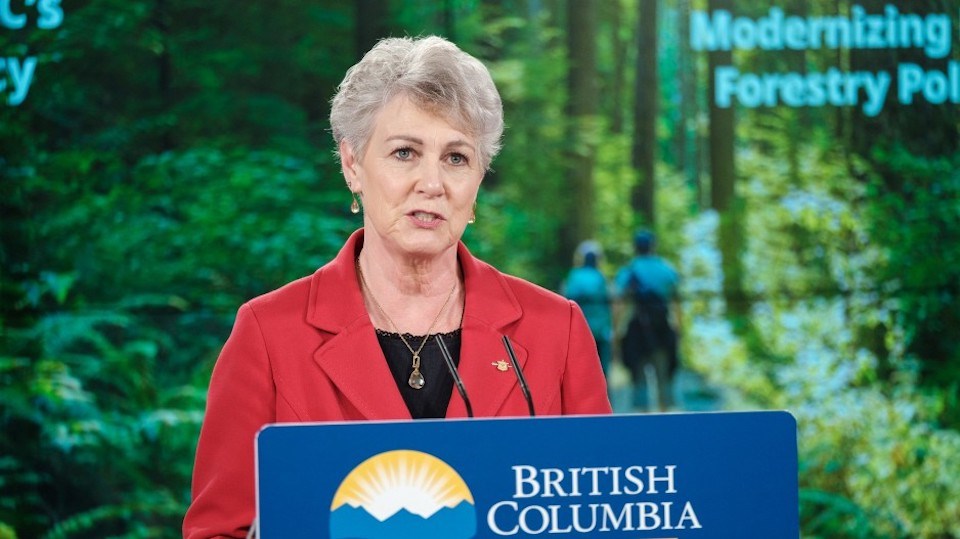With a $5.7-billion budget surplus in hand and enough briefing binders full of catch-up material to last through the holidays, B.C.’s new finance minister says she’ll be at work examining the province’s tax regime before the next budget is presented in February.
“That's something that definitely we need to dive into,” B.C. Finance Minister Katrine Conroy told BIV on Thursday, her second day on the job after being named to one of the most high-profile positions in Victoria.
“I'm not going to wake up tomorrow and decide to increase a bunch of taxes, that's for sure.”
The bigger-than-expected surplus comes after the province said last month it received a “significant update” from the Canada Revenue Agency for 2021 personal and corporate income taxes.
Conroy, who describes herself as a pragmatist, said she will be looking at using the hefty surplus to pay down debt, and consider ways to boost housing construction as well as offer help with school and hospitals.
But she emphasized these initiatives would have to be one-time spends.
“You can't take surplus dollars and put it into operating funds without being assured you're going to have that money for years to come,” said Conroy, who is facing down an economy widely expected to slow in 2023.
“I'll be … having those discussions with my colleagues about where they see that [surplus spending] working most in their industries and how we can utilize it.”
Last month Premier David Eby promised British Columbians a one-time cost of living credit for BC Hydro customers totalling $320 million. He also announced $500 million would be going to a new B.C. Affordability Credit.
Conroy, a former forests minister who served on the province’s Treasury Board before Wednesday’s cabinet shuffle, said housing remains among the top challenges for British Columbians.
“It's not just a provincial issue. It's an issue for municipalities and we all need to work together and to support each other,” she said.
Eby on Wednesday tapped former innovation minister Ravi Kahlon to lead a new standalone housing ministry.
Conroy said the creation of the housing ministry is a sign of how much energy will be expended by government on addressing the issue.
Kahlon’s appointment came the same day the Bank of Canada hiked its key rate another 50 basis points to 4.25 per cent, part of an effort to tamp down on decades-high inflation. It’s the seventh consecutive time the central bank has hiked the key rate since the start of the year, resulting in much higher mortgage rates for some Canadians.
“Global inflation … it's affecting us all, and it's driving up costs for people and we all have to work on that,” Conroy said. “But I think with the team that's at the cabinet table, we're going to be able to do that working together.”



